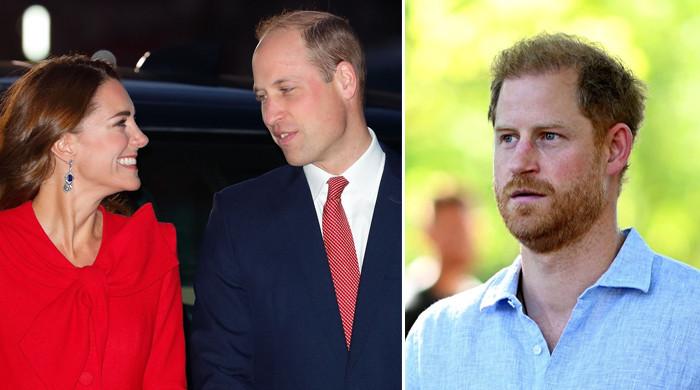Japan will improve its strategic partnership with the Philippines at an upcoming trilateral meeting with the United States amid rising tensions between Beijing and Manila.
The leaders of the three countries will meet in Washington on April 11 and are expected to discuss maritime security issues that are prompting Japan to take a stronger military role in the Asia-Pacific region.
Last month, China used water cannons to disrupt the Philippines’ mission to resupply its troops in the disputed South China Sea, an attack that President Ferdinand Marcos Jr. called “unlawful and coercive” and required countermeasures.
Despite the geographical distance south china seaAlexander Takefumi, a professor at the Asia-Pacific Center for Security Studies, said that Japan’s national interest lies in safeguarding peace in the entire region.
“From the Philippines’ perspective, Japan is Manila’s second most important partner in the South China Sea, after the United States, because of Japan’s high commitment to keeping the South China Sea free from Chinese domination; Japan’s strong economic and military power; and Japan’s proximity to the sea ,” he told VOA.
Protect area dominance
Freedom of navigation in the waters is vital to Japan, with 90% of Japan’s energy and trade flowing through the South China Sea. Japan relies heavily on crude oil imports from Saudi Arabia and the United Arab Emirates, while a quarter of the country’s total trade in 2019 came from EU and ASEAN members who also rely on sea routes.
Wu Wen added that Japan has changed its strategy from relying solely on the US-Japan military alliance to being more proactive in defending its national interests.
“In this vision, it is important to protect the sea lines of communication that connect Japan to the rest of Africa-Eurasia because these sea routes are some of the arteries of Japan’s supply chains,” he said.
Ken Jimbo, a professor at Keio University who specializes in Japan’s defense and security policy, said Japan’s goal is to curb China’s maritime presence.
“In diplomacy, [keeping China in check] Allowing Japan to strengthen its position in the Indo-Pacific region and promote closer security and defense cooperation with like-minded countries to counterbalance China’s assertiveness,” he told VOA.
Japan announced late last year that it was negotiating a defense deal with the Philippines called the Reciprocal Access Agreement (RAA) that would provide enhanced security assistance.
“Japan’s RAA negotiations with the Philippines mark the deepening of military cooperation and aim to enhance the defense relationship between the two countries,” Jinbo said. “Japan is considered a strong ally of the Philippines, not only in terms of military equipment but also in enhancing interoperability. and strategic coordination aspects to address common security challenges in the region.”
Early last year, the two countries signed terms of reference that streamlined the process for Japanese troops to enter the Philippines to provide humanitarian assistance.
Further friction with China?
Japan has sided with the Philippines and the United States, creating friction in the sometimes rocky Sino-Japanese relationship. Chinese Foreign Minister Wang Yi urged Japan to “take actions that are conducive to regional peace and stability,” state media outlet CGTN reported in late March.
Sources of friction between the two countries include anger over Japan’s use of sex slavery during World War II and the release of wastewater from the abandoned Fukushima nuclear power plant. There is also a long-standing dispute over the islands in the East China Sea, known as the Diaoyu Islands in China and the Senkaku Islands in Japan.
Jinbo said that the trilateral summit in Washington may strain Sino-Japanese relations, but the advantages outweigh the disadvantages.
“This is a well-thought-out move within Japan’s broader regional strategy,” he said. “The dynamics of Japan-China relations are complex, with economic interdependence and strategic competition coexisting, which shows that both countries are accustomed to dealing with fluctuations in the relationship.”
Vo Win said China was unlikely to react by exacerbating tensions over the Diaoyu/Senkaku Islands.
“Such tensions will only strengthen Japan’s belief in seeking regional cooperation to deny China’s regional dominance,” he said. “China may seek ways to hurt Japan economically, but for Japan, trilateral cooperation… helps correct the balance of power in the South China Sea in the long run… This will be extremely important if there is a conflict over Taiwan.”
China is currently Japan’s largest trading partner and one of the largest investment destinations for Japanese companies. Japan exports semiconductors and electronic components to China and imports telecommunications and computer equipment from China, according to government data.
Experts said that after the tripartite meeting, Japan is expected to send naval ships to patrol with the United States and the Philippines and may participate in military exercises in the South China Sea.
Follow us on Google news ,Twitter , and Join Whatsapp Group of thelocalreport.in

















“Cheerleaders should start dancing only when…”: KKR star’s cheeky comment on the new ‘trend’ of free-flowing boundaries this IPL cricket news